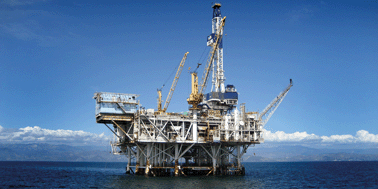We’ve just published our latest Environmental News article, brought to you each month by Mike Sharpe from MS Consulting. Here’s a sneak peek of some of the great content in the article, download for more!
 Europe debates offshore rules
Europe debates offshore rules
European policymakers are said to be making good progress with proposals to tighten rules on the safety of offshore oil and gas installations. The measures were first set out two years ago in the wake of the Deepwater Horizon disaster.
Mercury talks stall in Uruguay
The prospects of a meaningful international treaty on mercury appear to be receding after the latest round of talks in Uruguay made only sluggish progress. ‘‘We have only one meeting left [before the adoption of a global mercury treaty] and all big issues are still open,’’ said Elena Lymberidi of NGO coalition the Zero Mercury Working Group at the meeting in early July.
Diesel exhaust is carcinogenic: official
The International Agency for Research on Cancer (IARC), an agency of the World Health Organization based in Lyon, France, has issued a new evaluation of whether exhaust emissions from diesel and gasoline engines are human carcinogens. Based on the review of a large number of epidemiological, toxicological, and mechanistic studies of older diesel engines and gasoline engines, an IARC expert panel concluded that diesel exhaust is a Group 1, or known, human carcinogen and gasoline exhaust is a Group 2B, or possible, human carcinogen.
New evidence links ozone to heart attacks
Young, healthy adult volunteers exposed for two hours to ozone developed physiological changes associated with cardiovascular ailments, according to a study by EPA scientists. The changes were temporary and reversible in the young, healthy participants.
Nanoparticles combat marine fouling
Tiny vanadium pentoxide (V2O5) nanoparticles can inhibit the growth of barnacles, bacteria, and algae on surfaces in contact with water, such as ship hulls, sea buoys, or offshore platforms, scientists say. The discovery by researchers at Johannes Gutenberg University, Mainz (JGU) in Germany could lead to the development of new protective, antifouling coatings and paints that are less damaging to the environment than the products currently used.
Don’t forget that these articles are free to access through subscribing institutions or through an RSC Publishing Personal Account. Registration is quick and easy at http://pubs.rsc.org/en/account/register.










